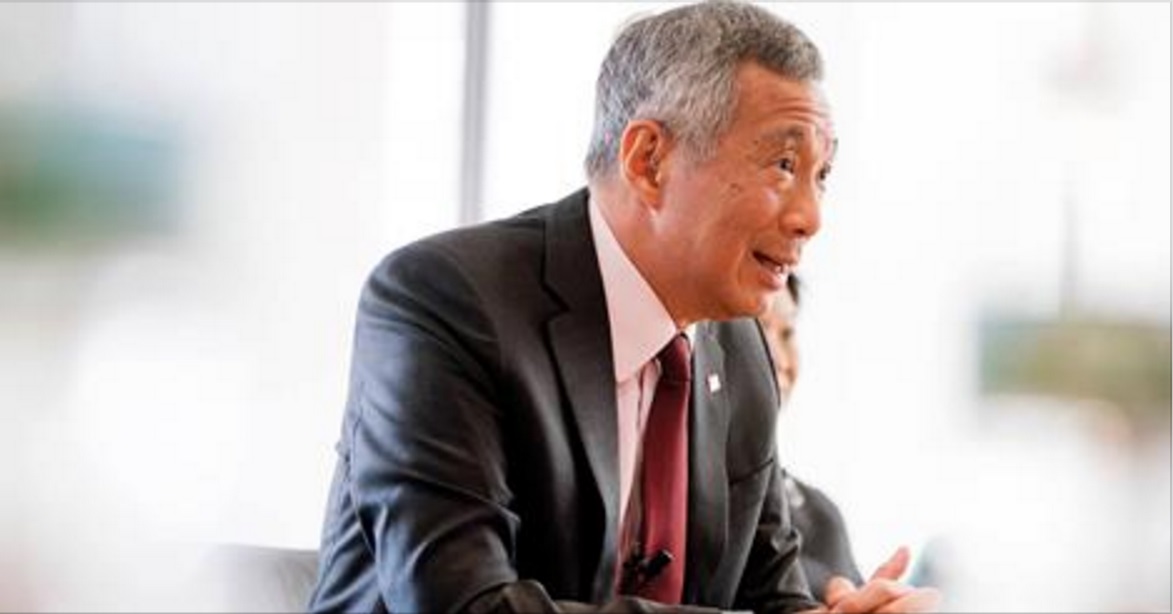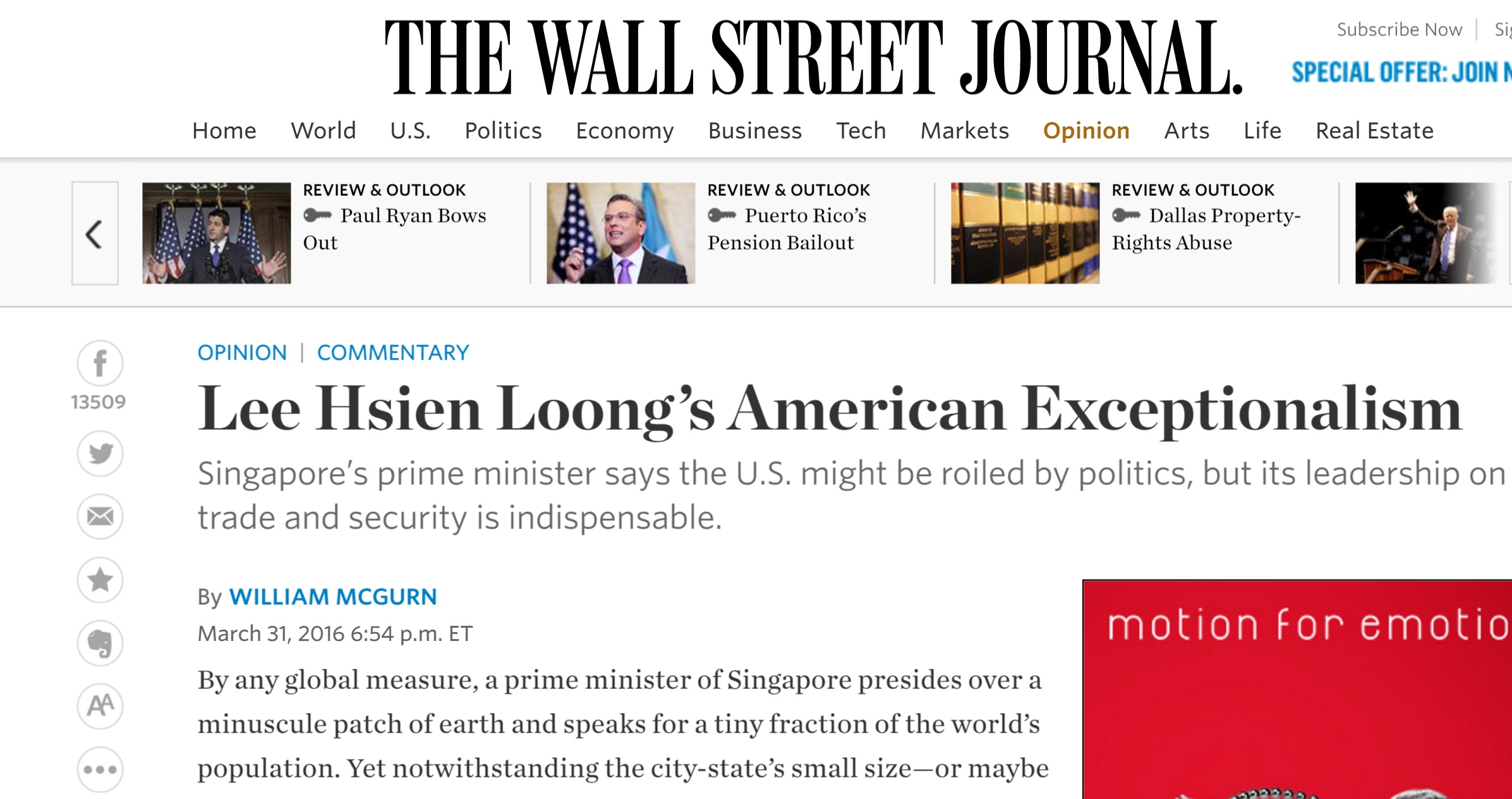The editors of Wall Street Journal (WSJ) sounded like spurned lovers in its latest editorial on Singapore.
After failing to get a decent quote from Lee Wei Ling (LWL) - who told WSJ that the family dispute “is a Singaporean matter” - in its earlier article ("Singapore’s Lee Family Feuds Over Allegations of Dynastic Politics" April 11), the WSJ editorial decided to stir things up.
WSJ implied that LWL's accusations of Prime Minister Lee Hsien Loong regarding his abuse of power meant that PM Lee faced a real dilemma whether to pursue legal recourse against his own sister, "since clemency could be construed as favoritism".
The WSJ editorial gleefully pointed out that Singapore’s self-image as a meritocracy has come under attack on social media from LWL, adding that the state-controlled media have published accusations against LWL for her comments.
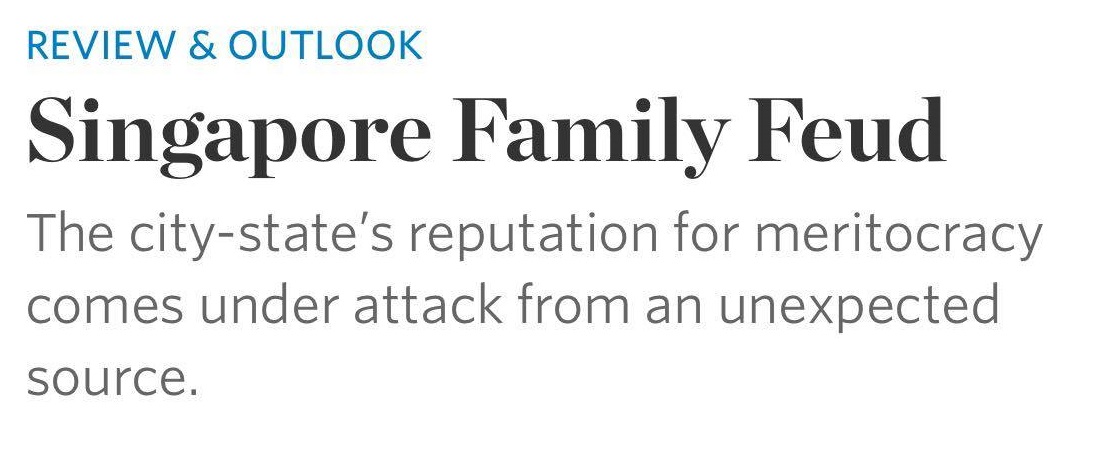 Source: WSJ
Source: WSJ
Such glee was lapped up by its readers, with the commentary emerging as WSJ's most popular article last night.
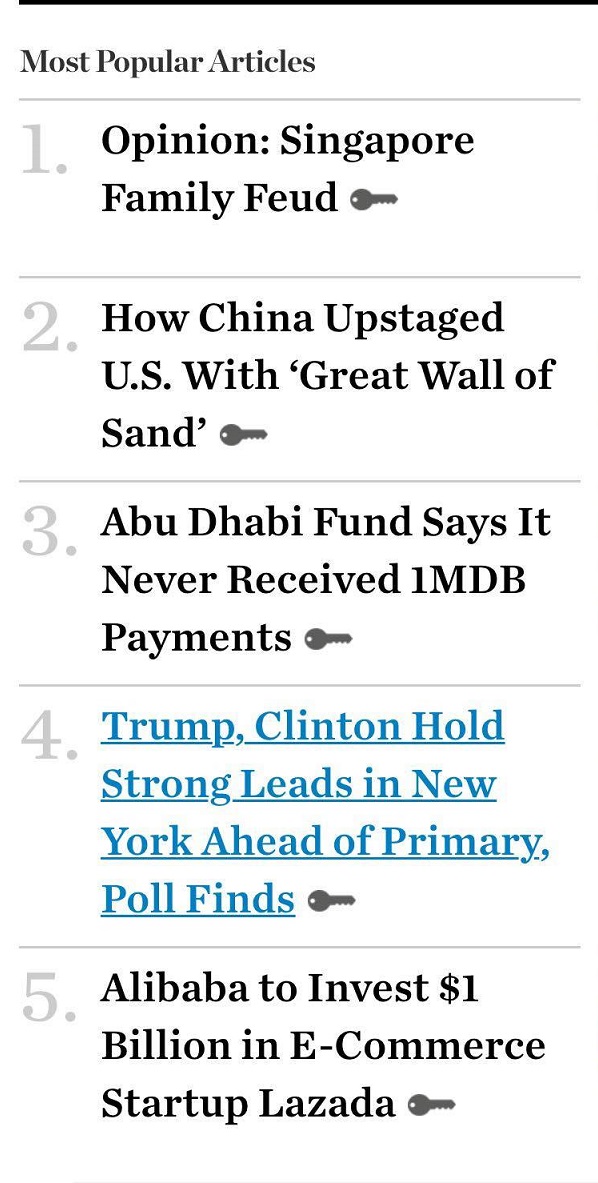 Source: WSJ
Source: WSJ
Before we begin, let's recap WSJ's coverage on Singapore over the past few years.
1. PM Lee's interview with WSJ:
PM Lee was interviewed by WSJ just last month for his views on American politics and international relations. In fact, PM Lee was asked about Singapore politics and GE 2015, though his insights were not covered in WSJ.
According to the commentary, PM Lee met the Wall Street Journal editorial board, probably the same folks who came up with the eyebrow-raising editorial.
In fact, PM Lee just published the English and Mandarin transcript of his WSJ interview today:
2. Commentary during the passing of Lee Kuan Yew:
When LKY passed away last year, its former deputy editor of the Journal’s editorial page lamented in her March 23 commentary that "Singaporeans are less fortunate when it comes to political and personal freedoms, among them free speech and free access to information"
Melanie Kirkpatrick, who revealed that she twice faced criminal contempt charges in Singapore for her editorials, added that LKY "had little confidence in the ability of Singaporeans to listen to different points of view, evaluate them and form correct opinions, which is to say, his opinions".
 Source: WSJ
Source: WSJ
3. WSJ editorial's criticism of Singapore for taking legal action against WSJ for allegedly casting doubt on the judiciary's integrity:
The 2008 WSJ editorial argued that the Singapore government had resumed its campaign against the paper.
Because their subject was "free speech and the rule of law" in Singapore, which was "something on which the international press and Singapore's government have often clashed".
It concluded by saying that it will "also continue to express our views about politics, the courts and other subjects that we think our readers should know about".
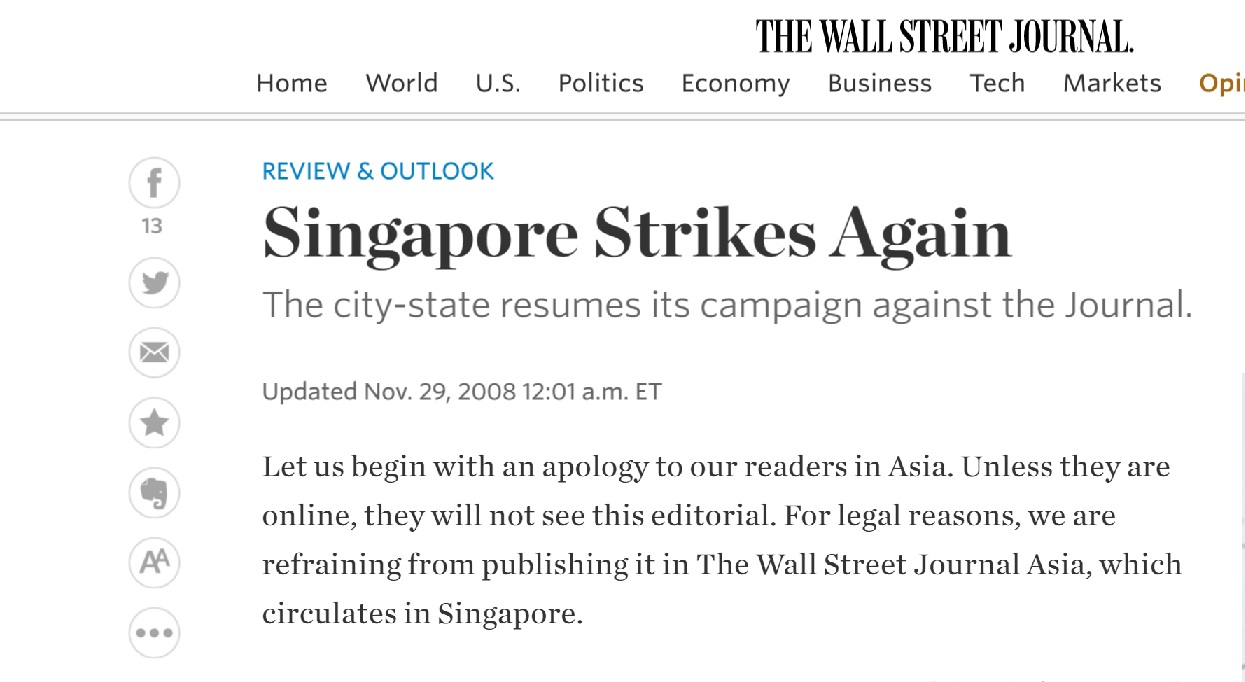 Source: WSJ
Source: WSJ
Anyway, the point we are making is this:
One cannot help but notice that WSJ in its past editorials and commentaries had cultivated, in WSJ's words, a "self-image" as a bastion of free speech and free access to information.
Therefore, one would assume that it would have been more consistent for the WSJ to advocate for LWL to speak up more.
Instead, their editorial seems to suggest that PM Lee should sue LWL to "protect the reputations of the country’s leaders" and perhaps "Singapore’s self-image as a meritocracy".
A bastion of free speech asking someone to sue another individual who exercised their right to free speech? The irony and hypocrisy is deliciously strong.
In 2008, the WSJ claimed that Singapore was resuming its campaign against the paper.
In 2016, it appears that the tables are turned.
Top photo from Lee Hsien Loong Facebook.
If you like what you read, follow us on Facebook and Twitter to get the latest updates.
If you like what you read, follow us on Facebook, Instagram, Twitter and Telegram to get the latest updates.
